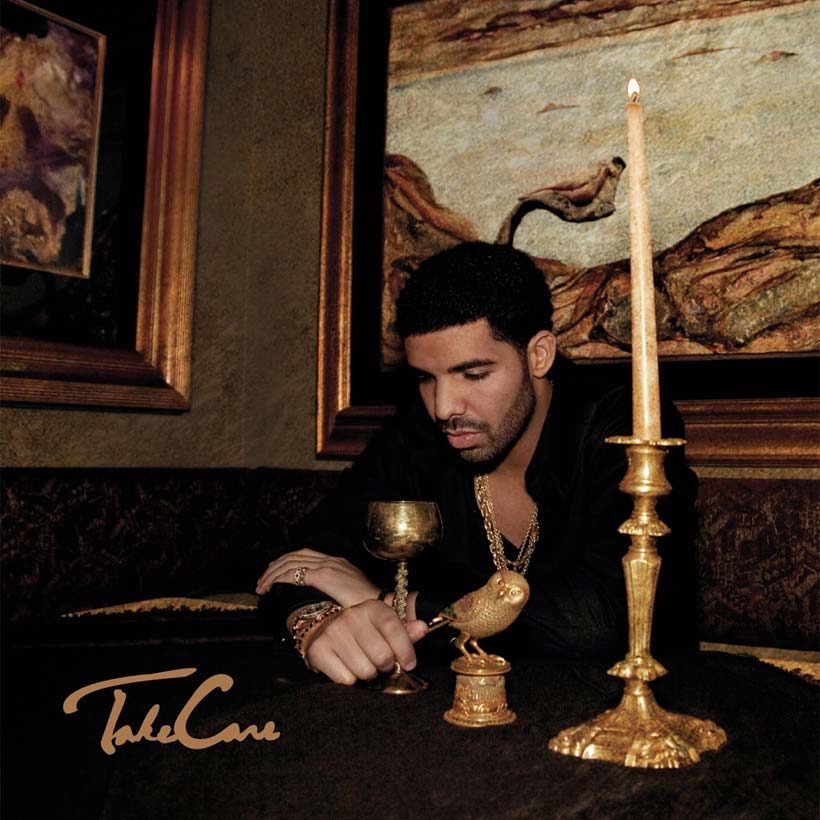‘Take Care’: How Drake Shaped Hip-Hop With Craft And Emotional Honesty
With a meticulous focus on every aspect of its creation, ‘Take Care’ found Drake laying the blueprint for hip-hop in the 2010s.

Though Drake’s 2010 debut album, Thank Me Later, was a huge commercial success (it debuted at No. 1 on the Billboard 200 before going on to attain platinum status), its creator was far from happy with the finished product. Back in the studio later that year and ready to record a follow-up, he resolved to exorcise what he felt was the rushed nature of its predecessor. The fruit of that work was to be called Take Care – a title chosen to reflect the extra attention given to every aspect of its construction.
Listen to Drake’s Take Care now.
Abandoning the multi-producer approach of Thank Me Later, Drake employed his long-time collaborator and close friend Noah “40” Shebib as Take Care’s chief sonic architect, a move which resulted in a far more cohesive-sounding effort. Under 40’s creative stewardship, Drake’s trademark downtempo mix of R&B, hip-hop, electronica, and pop was taken to new heights.
Highlights abound on a remarkably consistent work. The ethereal “Over My Dead Body” flirts with indie textures while both the Weeknd-guesting “Crew Love” and “The Ride” deliver dreamy doses of languid soul. Elsewhere, “Under Ground Kings” and “We’ll Be Fine” provided the requisite street-ready hip-hop heavy-hitters while “Lord Knows” enlisted Rick Ross for a rousing slice of gospel rap and Nicky Minaj was on hand to lend a memorable guest turn to the celebratory banger “Make Me Proud.”
The club-friendly, Rihanna-assisted title track provided Take Care’s huge international hit, reaching the Top 10 in the US, UK, Australia, New Zealand, and Denmark. It’s perhaps a sign of the rich vein of form that Drake was in that even the album’s bonus cut, the club banger “Motto,” was stellar fare; successfully released as a single, it gave birth to the popular phrase “YOLO” (You Only Live Once) in the process.
Perhaps Take Care’s most lasting impact, however, was in the openness of its lyrics. Typified by the likes of the drunken phone call-turned-confessional “Marvin’s Room” (so named because it was recorded in Marvin Gaye’s studio) and the beautifully soulful, spectral, piano-assisted “Look What You’ve Done” (a moving tribute to members of Drake’s family), Take Care offered a fascinating insight into the sometimes-fragile mind of a global superstar. Such an approach was often at odds with the machismo of hip-hop’s past, but it proved hugely influential, helping forge a more emotionally direct form of hip-hop in the decade that followed.
Following its release on November 15, 2011, Take Care debuted at No. 1 on the U.S. Billboard chart (selling 631,000 copies in its first week alone) and eventually went double-platinum. It proved immensely popular with critics too, making numerous end-of-year lists and winning Best Rap Album at the 55th Grammy Awards.












